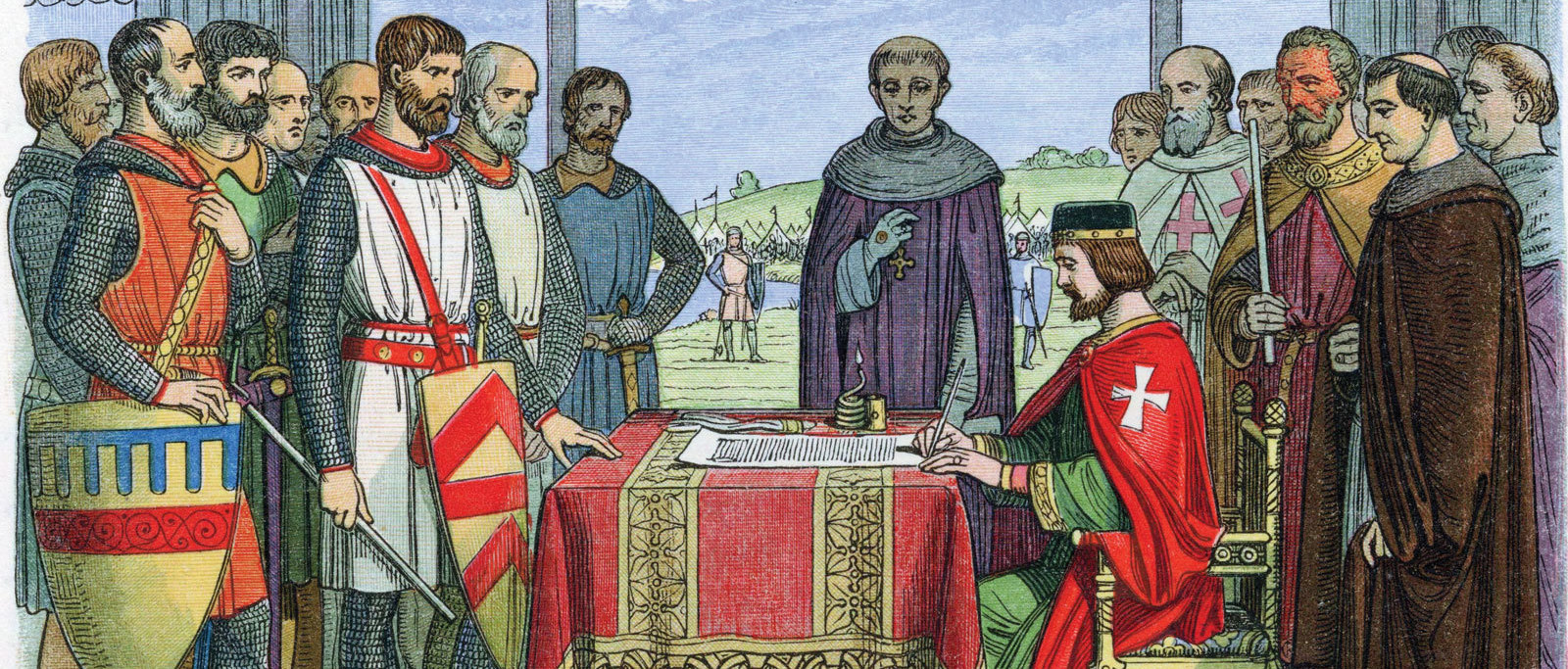Magna Carta
Posted on 1st January 2021
Magna Carta Libertatum ‘The Great Charter of the Liberties’, more commonly known as Magna Carta, was a peace charter signed by King John of England to prevent civil war with his barons.
The rebel barons presented demands for reform called ‘Articles of the Barons’. This detailed a proposal for political reform, and the first draft with sixty-three clauses was completed by the Archbishop of Canterbury, Stephen Langton.
It promised amongst other things:
Protection of church rights
Protection from illegal imprisonment
Access to swift justice
Limitations on taxation and feudal payments to the crown.
It was agreed and signed on neutral ground at Runnymede, near Windsor, England on 15 June 1215.
Twenty-five barons were created to ensure King John kept to the agreement of the charter.
It is believed to be one of the most important legal documents in history, and is classed as an early form of democracy. When King John set his seal on Magna Carta, he was agreeing that law applied to everyone and even though he was King, he was not above the law of the land.
Neither King John nor the barons would keep to the conditions of the charter and this led to the First Barons War less than three months later.
Tagged as: Junior Middle Ages
Share this post:





